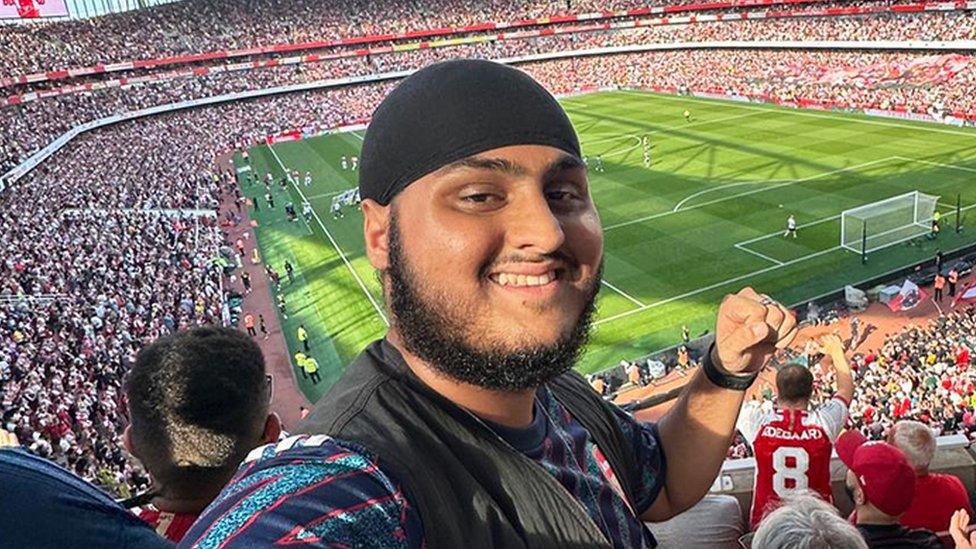Defiance: 'I felt anger hearing my dad's experience of racism'
- Published
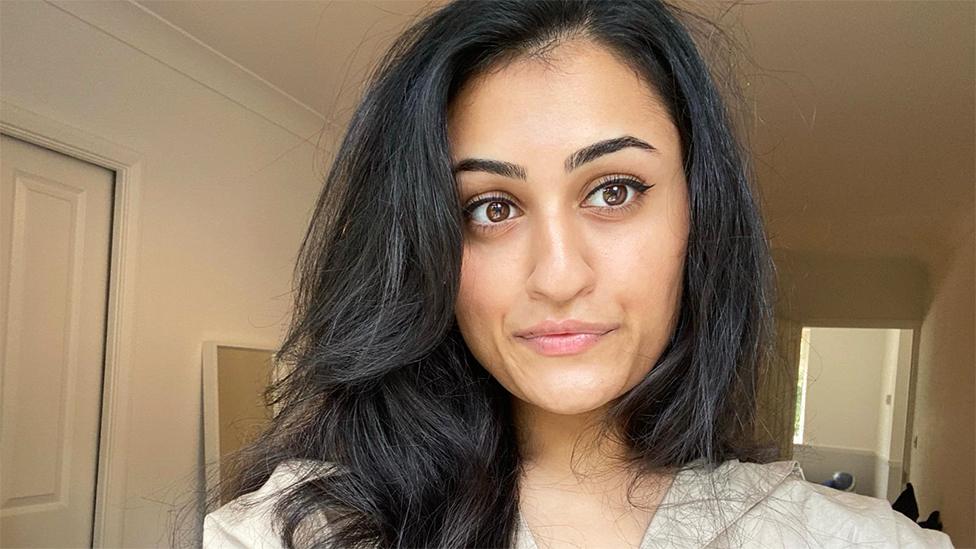
Jaya feels she has benefited from her parent's sacrifices and resilience
Walking down the streets of Southall today, British Asians feel a lot more at home.
But in the 1970s, with the rise of racist attacks and the far-right National Front, West London could feel like a dangerous place to even set foot in.
And that was especially true for Asians such as Jaya Pathak's parents.
"My dad remembers being chased out of a pub when he was with his friends by skinheads," Jaya says.
"He remembers people rolling down their car windows and shouting 'go back home', the usual racial slurs, the P-word."
But, she tells BBC Asian Network, it was a part of her dad's story she'd never heard before.
Jaya learnt about it while watching Defiance: Fighting the Far Right, a Channel 4 documentary which shows the history of British Asian resistance.
Produced by Oscar-nominated actor Riz Ahmed, the three-part series has sparked a conversation between different generations within the community.
"I felt emotional. I felt anger, frustration," says Jaya, who watched the programme with her parents.
"I found it really traumatic how my dad was able to talk about that so nonchalantly compared to how I felt."
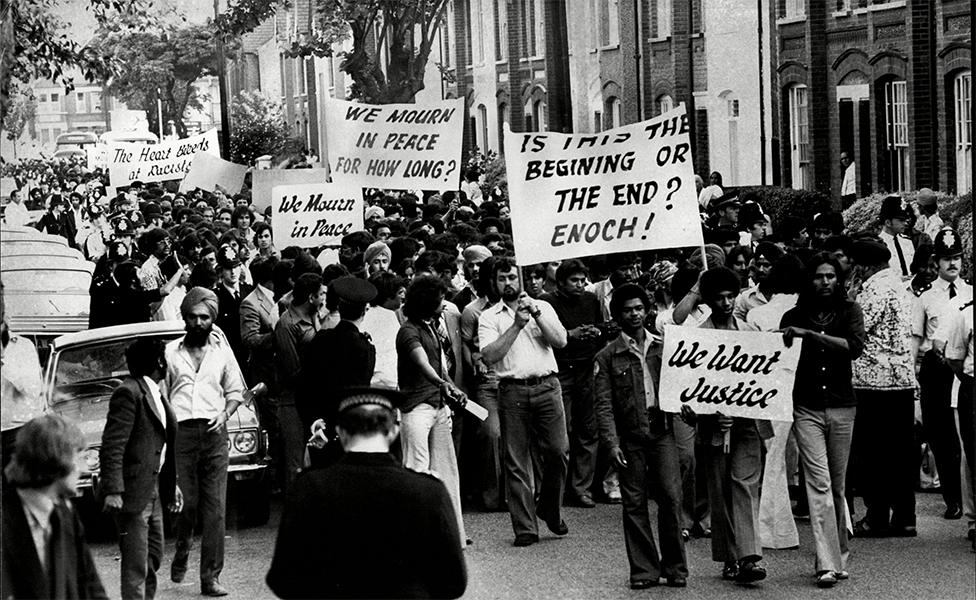
The documentary showed the fightback of the British Asian community
In the documentary, the archival footage shows anti-racist protestors being manhandled by the police and the aftermath of innocent British Asians, such as 18-year-old Sikh teenager Gurdip Singh Chaggar, being murdered.
It reminded Jaya's dad of something similar that happened to him.
"He was stopped and searched by a policeman in the build-up after Blair Peach was killed in an anti-Nazi demonstration," she says.
Blair, an anti-racism activist, died after being hit during a protest in Southall in April 1979. A report by the Metropolitan Police found a police officer, external is likely to have "struck the fatal blow".
Jaya had not known much about the movements from the 70s and 80s before the series came out.
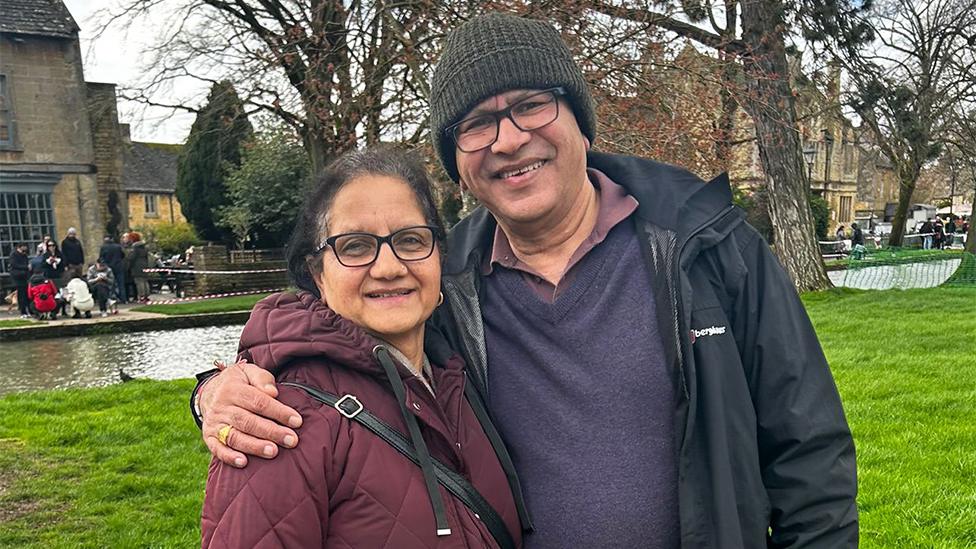
Meena's parents told her of their experience of the 1970s and 1980s
This was also the case for Meena Kumari, based in Leicester.
"A lot of this isn't taught in schools and wasn't really discussed growing up," she says.
Before the programme was released, Meena asked her family to make sure they were free to watch it.
In response, her father-in-law said he felt no need to, having "lived through it" himself.
Meena was taken aback: "I think that sentence alone just really struck me."
She realised how things that were criticised in the past, such as curry and traditional clothing, are now widely accepted or even seen as trendy.
"Now we're influencing so much," she says.
"That level of activism and what they were able to do has opened doors for the other generations coming up. And I cannot thank them enough."
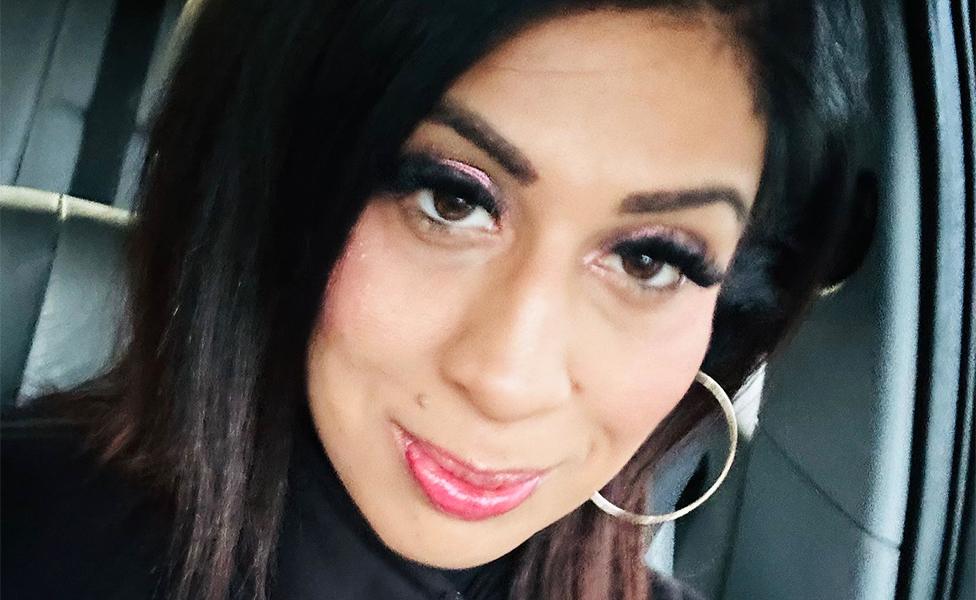
Meena feels "discrimination still exists"
The TV series has gone beyond just reminding British Asians like Meena of how far they have come but also inspiring her to go further.
"We can't stay idle, we can't stay still," she says. "We are acutely aware that discrimination and racism and oppression still exist."
Jaya agrees.
"I want to go forward and do something with that knowledge - pass it on, share it with people, challenge racism where it exists now.
"[Our parents] really paved the way for us to be in a position where we can do and speak about things that they were never able to," she says.
"We've benefited so much from their sacrifices and their resilience.
"We tend to forget this isn't just South Asian history, this is British history. It's such an important chapter."

Read more from the BBC:


Related topics
- Published10 April 2024
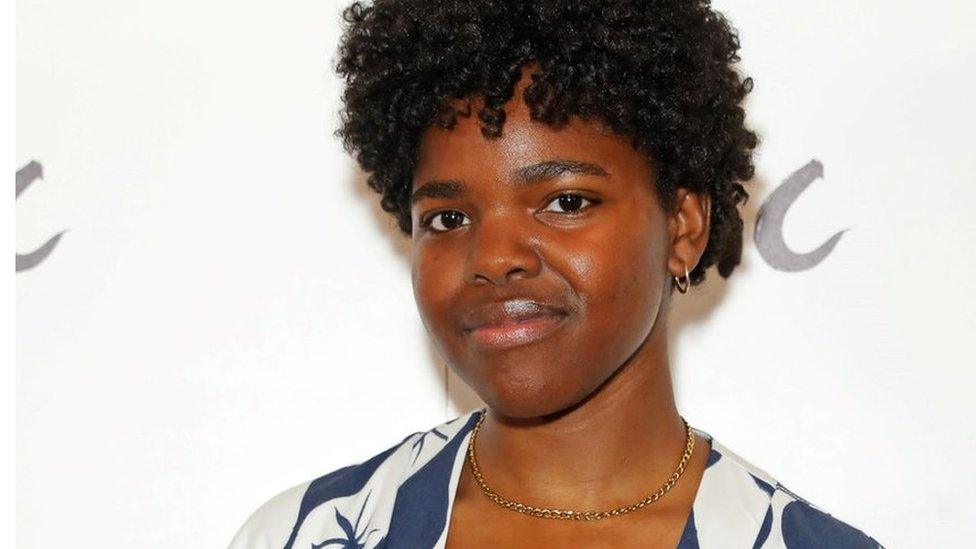
- Published1 March 2024
